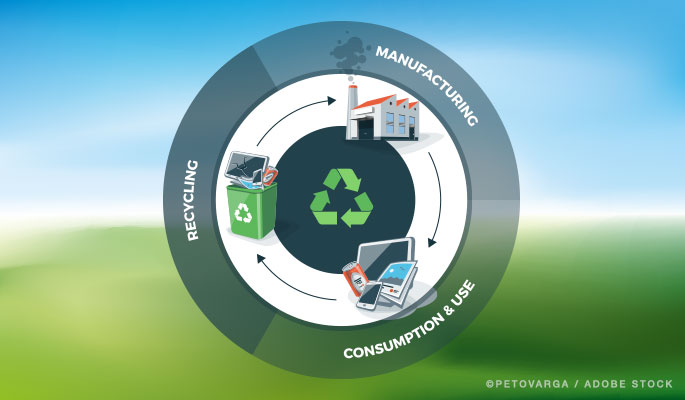While there is a widespread understanding that climate change is a danger, energy and natural resources are becoming scarce, and pollution is an ever present threat to human and animal health, these understandings have not translated into changes in the amount of waste we produce. With waste from organic materials, including food and agriculture waste, producing a great deal of methane in landfills, several processes are being developed to transform organic waste materials into something useful: energy, chemicals, or materials that can be used in industrial processes. This process is food waste valorization.
Several new large-scale processes have been developed and are being tested for municipality scale use. Using microwave technology to break down products using heat during a single pass through a flow system is one technology; bioengineering is also working to develop bacterial engines, like super strains of bacteria, that speed up the rate of biological decomposition. Pyrolysis uses both heat and chemical transformation of materials. The end result of these processes will be, hopefully, fuels that can begin to replace fossil fuels, without the health consequences of fossil fuel production; individual chemicals that can be isolated and removed from the processing, and materials such as polymers and plastics, or their precursor materials. Chemists and engineers are working to develop these practices into systems that can work for large scale applications.
One of the significant barriers to the success of these systems is the difficulty in breaking down lignin. The cell walls of wood fibers, lignin is sturdy and long lasting, both characteristics that make it difficult for the chemical, biological, and heat processes to reduce it to constituent materials. By far the majority of organic waste going into landfills is wood. This waste is from construction materials and construction demolition of old buildings, as well as industrial waste. Many times, this wood is contaminated with lead based paint and other heavy metals or chemicals from industrial use. It has to be processed in such a way that the heavy metals and other chemicals that are human health hazards can be segregated. At this time, the energy needed to reduce lignin waste requires significant energy use to heat it enough to process the materials completely.
The meaning of organic and food waste valorization is the process of taking waste and changing it into constituent parts that can be utilized, and have value beyond the cost of the energy needed to process the transformation. Scientists and engineers are working on prototype technologies that can begin this job.





































































































































 Three Ways to Engage Teams and Clients to Maximize Your Recycling Program Engagement
Three Ways to Engage Teams and Clients to Maximize Your Recycling Program Engagement  How to Integrate Accessibility Into Your Sustainability Planning
How to Integrate Accessibility Into Your Sustainability Planning  Why Park Benches Can Promote Workplace Well-Being
Why Park Benches Can Promote Workplace Well-Being 

Pingback: Addressing food loss and waste in Spain - ESCI-UPF News